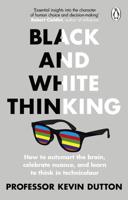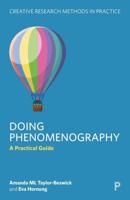Publisher's Synopsis
This Oxford Handbook offers a comprehensive and authoritative review of important developments in computational and mathematical psychology. With chapters written by leading scientists across a variety of subdisciplines, it examines the field's influence on related research areas such as cognitive psychology, developmental psychology, clinical psychology, and neuroscience. The Handbook emphasizes examples and applications of the latest research, and will appeal to readers possessing various levels of modeling experience. The Oxford Handbook of Computational and mathematical Psychology covers the key developments in elementary cognitive mechanisms (signal detection, information processing, reinforcement learning), basic cognitive skills (perceptual judgment, categorization, episodic memory), higher-level cognition (Bayesian cognition, decision making, semantic memory, shape perception), modeling tools (Bayesian estimation and other new model comparison methods), and emerging new directions in computation and mathematical psychology (neurocognitive modeling, applications to clinical psychology, quantum cognition). The Handbook would make an ideal graduate-level textbook for courses in computational and mathematical psychology. Readers ranging from advanced undergraduates to experienced faculty members and researchers in virtually any area of psychology--including cognitive science and related social and behavioral sciences such as consumer behavior and communication--will find the text useful.










